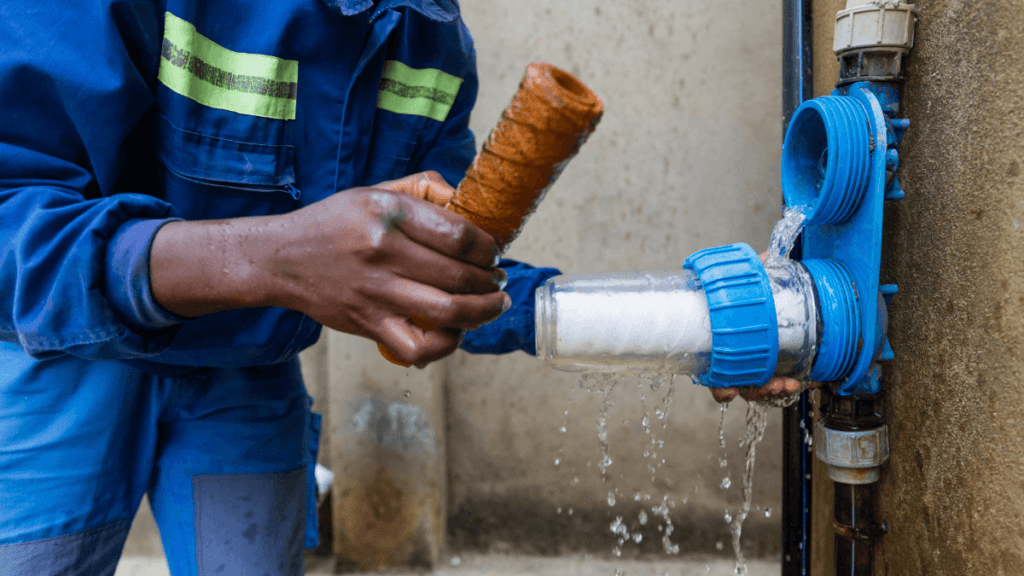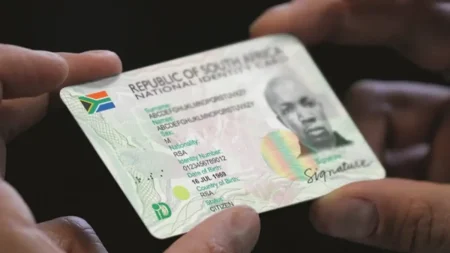Water conservation is a crucial part of ensuring that we have enough resources to support both current and future generations. In South Africa, water scarcity is a significant concern, and every drop counts. A leaking water pipe not only wastes valuable water but also affects the community by leading to water shortages, infrastructure damage, and increased municipal costs. If you notice a water pipe leak in your area, it’s essential to report it promptly to your local municipality.
This article will guide you on how to report a leaking water pipe quickly and effectively, focusing on the processes relevant to South Africa.
The Importance of Reporting a Leaking Water Pipe
Before we dive into how to report a leaking water pipe, let’s first understand why this is so important. A leaking water pipe can lead to:
- Water Waste: Even a small leak can waste thousands of litres of water over time.
- Property Damage: Leaks can erode soil, damage roads, and cause flooding, leading to costly repairs.
- Cost Increases: Water leakage increases municipal operational costs, and these costs can eventually be passed on to residents through higher water tariffs.
- Health Risks: Water leaks in certain areas can promote the growth of harmful bacteria and pests, which can lead to health hazards.
By reporting leaks promptly, you help reduce water wastage, mitigate damage to infrastructure, and assist municipalities in managing their resources efficiently.
How to Identify a Leaking Water Pipe
First, it’s important to identify whether the issue you’re noticing is indeed a leaking water pipe. Signs of a water leak may include:
- Puddles or Wet Spots: Unexplained wet spots or puddles forming on the ground may indicate a leaking pipe.
- Low Water Pressure: If the water pressure in your area decreases or fluctuates, it could be due to a leak in the system.
- Increased Water Bills: If you are being billed for an unusually high amount of water despite using the same amount as usual, there may be a hidden leak somewhere in the system.
- Sound of Running Water: If you hear water running but cannot locate a source, it’s possible a pipe is leaking underground.
If you observe any of these signs, it’s important to act quickly.
Steps to Report a Leaking Water Pipe in South Africa
Identify the Responsible Municipality
South Africa has various municipalities, each responsible for managing its local infrastructure, including water distribution. Before reporting the leak, ensure you know which municipality covers your area. You can generally find this information on your municipal bill or through a quick internet search.
Gather Information
When reporting a leak, the more information you can provide, the better. This allows the municipality to respond quickly. Key details to gather include:
- Exact Location: Provide the address or area where the leak is occurring. This is crucial for pinpointing the problem.
- Description of the Leak: Note whether the leak is coming from a water main or a smaller distribution pipe, and whether it’s active or seems to have been happening for some time.
- Time of Occurrence: If possible, record when the leak started or when you first noticed it. This can help the municipality identify the severity of the issue.
Contact Your Municipality
Once you have the necessary information, contact your local municipality. There are several ways to do this:
- Phone: Many municipalities have dedicated emergency hotlines for reporting water leaks. You can find these numbers on your municipal bill or their website.
- Online Reporting Portals: Several South African municipalities provide online portals where you can log reports about water leaks and other municipal issues.
- Email: Some municipalities also accept leak reports via email. This method is less immediate, but it’s still an option if you’re unable to reach them by phone or through an online portal.
- Social Media: In some cases, municipalities have social media accounts on platforms like Twitter or Facebook, where you can directly report issues.
Follow Up
After submitting your report, you might want to follow up if the problem hasn’t been resolved in a timely manner. Most municipalities will provide a reference number for your report, which you can use to check the status of the repair.
Monitor the Repair Process
Stay informed about the repair progress. In some cases, municipal teams may need to dig up roads or access private property to fix the leak, which could cause disruption. Communicate with your municipality to stay updated on expected timelines and work schedules.
Common Municipalities and How to Report a Leak
Here’s a quick reference guide to help you navigate the process in some of South Africa’s major municipalities:
| Municipality | Contact Method | Website/Portal | Hotline Number |
|---|---|---|---|
| City of Johannesburg | Online Portal | www.joburg.org.za | 011 375 5555 |
| City of Cape Town | Phone/Online | www.capetown.gov.za | 0860 103 089 |
| Ekurhuleni Metropolitan | Phone/Email | www.ekurhuleni.gov.za | 011 999 4444 |
| eThekwini Municipality | Phone/Online | www.durban.gov.za | 031 361 0000 |
| Nelson Mandela Bay | Phone/Email | www.nelsonmandelabay.gov.za | 041 506 5555 |
Note: Always ensure you visit the correct website for the most current contact information.
What to Expect After Reporting a Leak
Once you report the leak, the municipality will likely take the following steps:
- Acknowledge Your Report: You will typically receive an acknowledgment of your report, either via email, SMS, or phone, with a reference number.
- Inspection and Assessment: Municipal teams will usually inspect the site of the leak to assess the damage. They may send a technician or a crew to the location.
- Repair Work: If the leak is confirmed, the municipality will schedule repairs. This could involve digging up roads or using specialized equipment to fix the broken pipe.
- Notification of Completion: Once the repair is complete, you may receive a notification confirming the issue has been resolved.
Additional Tips for Handling Water Leaks
- Notify Neighbours: If the leak is in a public area, notify your neighbours as well so they can reduce water usage or prepare for any temporary disruptions.
- Track Your Water Usage: After the repair, keep an eye on your water bill to ensure it returns to normal levels, especially if the leak was impacting your supply.
- Consider Reporting Regularly: If you live in an area prone to leaks, reporting any new issues regularly can help prevent larger, more expensive problems.
Check also: 19-Hour Water Shutdown to Hit Johannesburg
Reporting a leaking water pipe promptly to your local municipality in South Africa is an important step in ensuring that our water resources are used efficiently. By following the steps outlined above—identifying the leak, gathering key information, contacting the relevant authorities, and monitoring the repair—you can help stop the drip and contribute to conserving this vital resource. Always remember that water wastage has far-reaching consequences, so a quick response can make a big difference.










